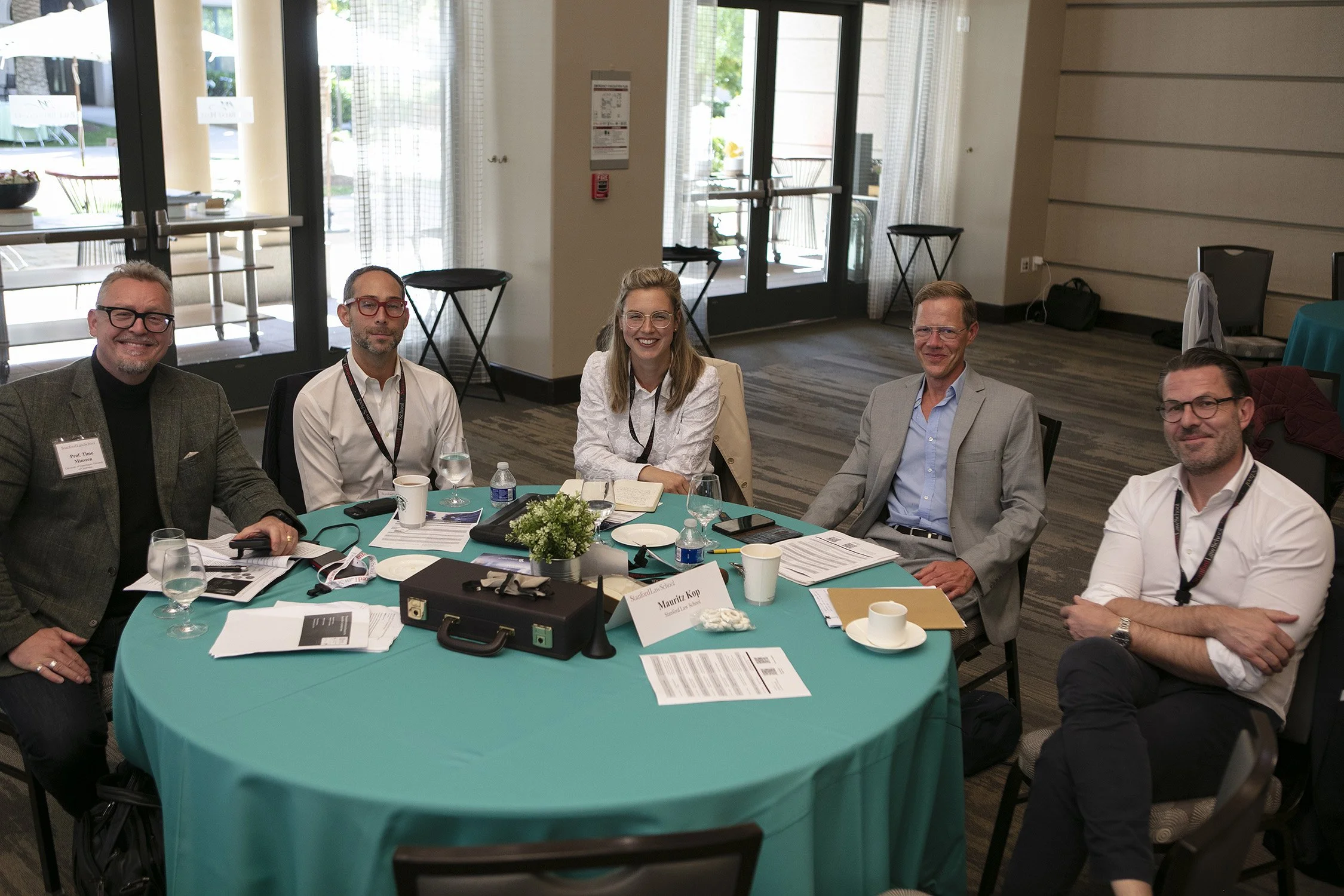The 2nd annual Stanford Responsible Quantum Technology Conference convened by the Stanford Center for Responsible Quantum Technology and expertly orchestrated by its Executive Director Mauritz Kop, provided a broad overview of the latest developments in quantum technology, with a focus on quantum simulation. It brought together a diverse and interdisciplinary group of experts from the US and Europe – united in their interest in responsible development and use of second-generation quantum technologies – to discuss innovations, challenges, and future directions in this emerging space. The conference included both in-depth presentations and far-ranging panel discussions, with artistic and musical performances interspersed as alternative spaces of approximation and exploration.
The following write-up by Constanze Albrecht does not aim to offer a comprehensive overview of the wealth of perspectives and insights shared at the conference. Instead, it introduces some of the conference’s core themes by summarizing some of the anchor presentations and is intended as an invitation to readers to dive deeper into the conference materials and videos posted online.
Technological Advancements and Market Dynamics
One of the standout presentations was “Project Quantum Leap: Quantum Computing Innovation—Patenting Trends Innovation & Policy Implications” by Mateo Aboy. This presentation offered an in-depth empirical study of the intellectual property landscape in quantum computing. He emphasized the necessity of evidence-based IP studies to inform policy and innovation governance in this rapidly evolving field. Aboy revealed significant growth in quantum computing patents over the past two decades, particularly noting an uptick since 2014, with patents mainly focuses on physical realizations, quantum circuits, error correction, and quantum algorithms. This surge reflects the increased involvement of diverse entities, including universities, startups, and established corporations.
The presentation further highlighted the critical role of international harmonization in patent laws and the importance of public disclosures in advancing technology. Mateo Aboy also explored the state-of-the-art applications of quantum computing in healthcare, emphasizing its potential to revolutionize both fundamental and clinical research despite being in its early stages. He concluded with a call for a balanced regulatory approach that promotes technological advancement while safeguarding against potential risks, underscoring the need for proactive policy measures.
Quantum Use Cases in Healthcare and Life Sciences
In this context, a fascinating panel discussion moderated by Hank Greely offered a deep dive into the applications and use cases of quantum technology in the health and life sciences. Mateo Aboy, Glenn Cohen, Timo Minssen and Victoria Ward examined the transformative potential of quantum computing, sensing, and simulation in enhancing diagnostic tools, personalizing treatment plans, and accelerating drug discovery processes. The discussions also addressed market dynamics, highlighting the competitive landscape and the strategic positioning of key players in the quantum technology market. The panelists underscored the importance of fostering a robust innovation ecosystem that supports the growth of startups and encourages collaboration between academia, industry, and government bodies.
Providing insight into the technical aspects of quantum technology innovation, Mark Brongersma, Professor in the Department of Materials Science and Engineering at Stanford University, presented cutting-edge research at the intersection of materials science and quantum technology. His presentation focused on developing and analyzing nanostructured materials for nanoscale electronic and photonic devices. Key research topics included nanophotonics, which enhances light manipulation at the subwavelength scale, and microcavity resonators, which confine light to boost light-matter interactions. This pioneering work paves the way for future innovations that could revolutionize current sensing and simulation technologies.
Meer lezen











